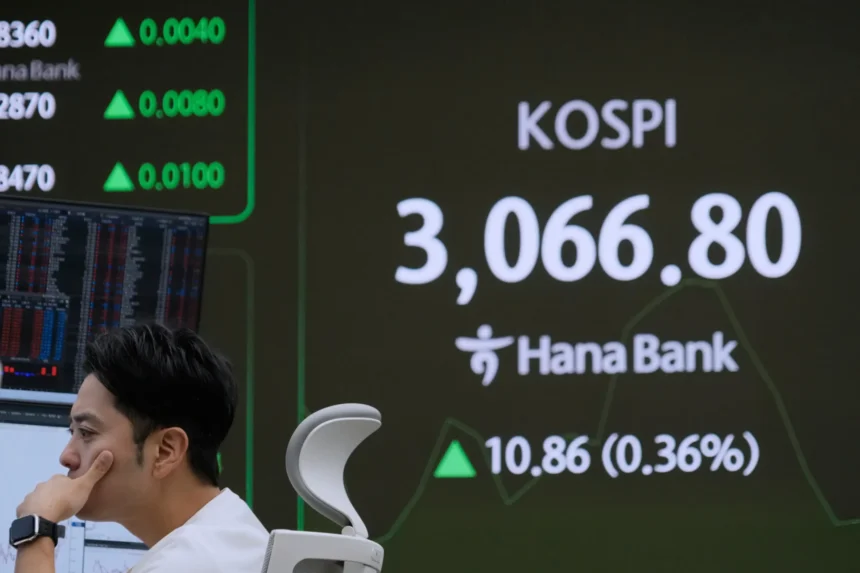Asian Stock Markets React to Trade War Anxiety
Asian stock markets saw mixed results on Wednesday, largely driven by trade war anxieties after U.S. President Donald Trump indicated he would not extend next week’s tariff deadline.
Tokyo’s market was particularly affected by Trump’s threats to significantly increase duties on Japanese goods.
Market sentiment was also influenced by the U.S. Senate’s narrow approval of President Trump’s major budget bill. While the extension of substantial tax cuts brought some optimism, warnings that the bill could add roughly $3 trillion to the national debt tempered enthusiasm.
With only a week left until Trump’s 90-day pause on “reciprocal” tariffs expires, few governments have secured deals to avoid these taxes, although White House officials claim several are in progress.
Investors had largely anticipated a postponement of the July 9 deadline or an extension for countries to finalize agreements. However, Trump stated on Tuesday that he was “not thinking about the pause” and reiterated his threat to end negotiations or impose higher duties.
Japan was specifically singled out by Trump this week, who criticized its policies regarding U.S. rice and auto exports.
Credit: North Shore News
He further accused Tokyo of having “ripped us off for 30, 40 years” and warned of potential tariffs of “30 per cent, 35 per cent, or whatever the number is that we determine, because we also have a very big trade deficit with Japan.” These remarks, coming after numerous visits by Japanese officials to Washington, dashed hopes for successful trade agreements.
Tokyo stocks consequently declined, extending losses from the previous day.
Stephen Innes at SPI Asset Management noted that with upcoming domestic elections, Japan cannot easily open its rice market.
He warned that “without concessions on autos, the lifeblood of its export economy, Japan stands exposed,” emphasizing that the auto sector, which accounts for nearly a tenth of Japan’s GDP, is “directly in the crosshairs.”
Innes suggested that “Japan is being made an example of, and markets are watching who’s next.”
Wendy Cutler of the Asia Society Policy Institute added that Japan’s stance on rice and the U.S. resistance to auto tariffs could lead to the re-imposition of Japan’s 24 per cent reciprocal tariff.
Elsewhere in Asia, Seoul, Shanghai, Manila, Mumbai, Bangkok, and Jakarta experienced declines, while Hong Kong, Sydney, Singapore, Taipei, and Wellington saw slight gains. European markets in London, Paris, and Frankfurt were all up by afternoon trading.
In U.S. news, senators passed Trump’s “Big, Beautiful Bill,” which aims to boost the economy by extending tax cuts and reducing spending on programs like Medicare.
The legislation now faces a challenging path through the House of Representatives, where some Republicans have raised concerns about its cost amidst rising fears over the nation’s finances.
The U.S. dollar remained under pressure as speculation intensified regarding a potential Federal Reserve interest rate cut ahead of this week’s U.S. jobs data.
While most traders anticipate a rate reduction in September, a weak non-farm payrolls report could increase the likelihood of a cut this month.
The Dollar Index saw a significant 10.8 per cent drop in the first half of the year, its steepest decline since becoming the global benchmark currency.
In company news, Australian airline Qantas shares fell over two per cent in Sydney after announcing an investigation into a “significant” cyberattack that compromised sensitive data of six million customers.
Additionally, Hong Kong-listed Chinese tech giant Alibaba saw its shares dip after revealing plans to issue US$7 billion in subsidies for certain purchases.








